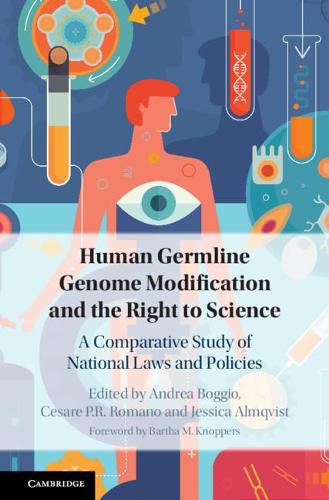Readings Newsletter
Become a Readings Member to make your shopping experience even easier.
Sign in or sign up for free!
You’re not far away from qualifying for FREE standard shipping within Australia
You’ve qualified for FREE standard shipping within Australia
The cart is loading…






The advent of the CRISPR/Cas9 class of genome editing tools is transforming not just science and medicine, but also law. When the genome of germline cells is modified, the modifications could be inherited, with far-reaching effects in time and scale. Legal systems are struggling with keeping up with the CRISPR revolution and both lawyers and scientists are often confused about existing regulations. This book contains an analysis of the national regulatory framework in eighteen selected countries. Written by national legal experts, it includes all major players in bioengineering, plus an analysis of the emerging international standards and a discussion of how international human rights standards should inform national and international regulatory frameworks. The authors propose a set of principles for the regulation of germline engineering, based on international human rights law, that can be the foundation for regulating heritable gene editing both at the level of countries as well as globally.
$9.00 standard shipping within Australia
FREE standard shipping within Australia for orders over $100.00
Express & International shipping calculated at checkout
The advent of the CRISPR/Cas9 class of genome editing tools is transforming not just science and medicine, but also law. When the genome of germline cells is modified, the modifications could be inherited, with far-reaching effects in time and scale. Legal systems are struggling with keeping up with the CRISPR revolution and both lawyers and scientists are often confused about existing regulations. This book contains an analysis of the national regulatory framework in eighteen selected countries. Written by national legal experts, it includes all major players in bioengineering, plus an analysis of the emerging international standards and a discussion of how international human rights standards should inform national and international regulatory frameworks. The authors propose a set of principles for the regulation of germline engineering, based on international human rights law, that can be the foundation for regulating heritable gene editing both at the level of countries as well as globally.